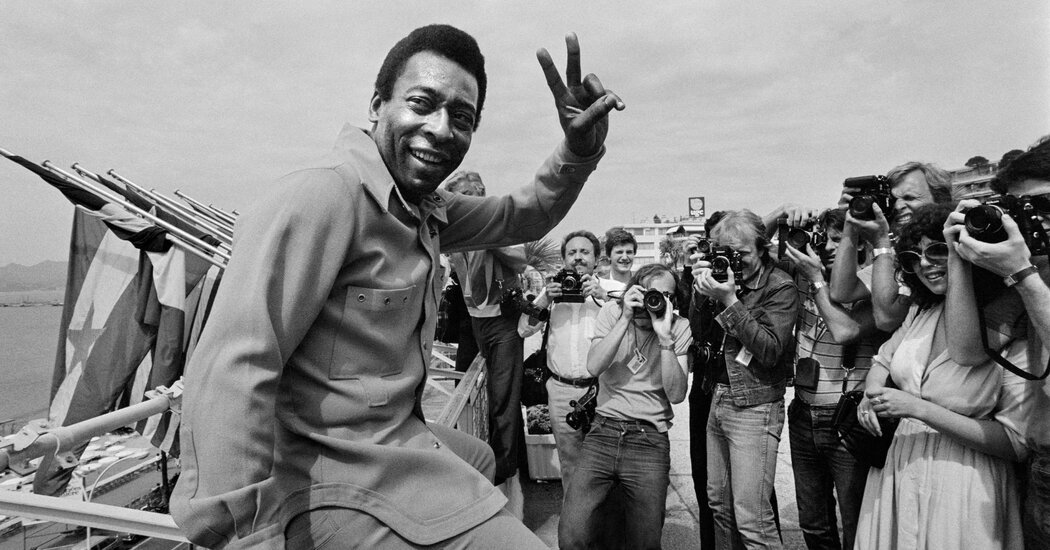Pelé, sometimes to the frustration of activists, rarely spoke out about racism during his playing career or afterward. He would often repeat the consensus view that Brazil was in fact a “racial democracy,” a position that has been challenged with the growth of the Black consciousness movement. His refusal to take political stands also stood out in a period when Brazil was ruled by a series of dictatorships, during which Brazil’s military sought to take advantage of soccer’s popularity to sustain its hold over the country.
“I thought his behavior was that of a Black person who only said, ‘Yes sir,’ a Black person who is submissive, accepts everything,” Paulo Cézar Lima, a former teammate on the Brazilian national team, said in a 2021 Netflix documentary made with Pelé. “A single word would have meant so much in Brazil.”
Yet to some of his other compatriots, Pelé’s very presence as a globally recognized Black Brazilian was enough. Taking on a dictatorship, after all, carried risks.
Pelé’s legacy was sealed at the 1970 World Cup, a tournament in which he initially did not want to play. Brazil’s team, a double defending champion, had been eliminated in the group stage in the 1966 championship in England, with Pelé literally kicked out of the tournament by the roughhouse play of Brazil’s opponents. He was nearing 30 as the 1970 tournament neared, and he had said he had enough. Yet his country, and its military leaders, wanted him to go, and he finally buckled to the pressure and traveled to Mexico with a team few at home believed could win the title.
That it did so, in stunning style and with Pelé at its heart, brought joy to a country then living through some of the darkest years of its modern history, a time when the government of Emílio Garrastazu Médici killed and disappeared scores of its opponents and tortured thousands more.
“I am convinced that I helped Brazil a lot more with my football, with my way of being, than the politicians whose job it was to do this very thing,” a frail-looking Pelé told the Netflix filmmakers for the documentary released last year.
As Pelé’s star rose, so did that of Brazilian soccer. His team, Santos, which had given Pelé his debut at 15, became a global force. With Pelé in its ranks, it was lured to Europe for monthslong tours, where it took on — and took apart — some of Europe’s biggest clubs. Those European teams quickly came to realize what Brazil was, Pelé would say. But he always came home.
Sumber: www.nytimes.com
